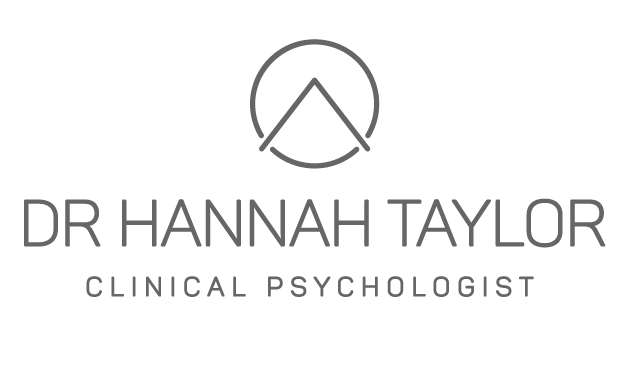What is Compassion Focused Therapy?
Dr Hannah describes Compassion Focused Therapy (CFT) and the powerful impact it can have on your wellbeing and mental health.
Book a free initial consultation
*Free 15 minute telephone conversation
As a Clinical Psychologist, I am trained to deliver a number of therapy approaches. I work with my clients to offer them a therapy which meets their needs and achieve their desired outcomes and goals. A therapy which I am very passionate about is called Compassion Focused Therapy (CFT). I practice CFT both personally and professionally which allows me to authentically deliver this therapy to my clients. Over the years, I have witnessed my clients make the most incredible changes in their lives using this approach (click here for client testimonials). In this article I’m going to give you an idea of the origins of CFT, what to expect from it and the impact it can have on our mental health and wellbeing.
What is Compassion Focused Therapy (CFT)?
CFT was developed by Professor Paul Gilbert OBE, a Clinical Psychologist based in the UK. It is a form of psychotherapy that was developed to address high levels of shame and self-criticism that often are deeply embedded in mental health struggles. Research has shown the self-criticism and shame have the potential to make talking therapies less effective. Therefore, it’s so important to address it. It is important to note that self-criticism and shame often symptoms of a wide variety of emotional wellbeing challenges. Undoubtedly, it is often the reason why people don’t seek help for their difficulties.
During my career I have worked with clients with all types of struggles. These range from anxiety, anger, depression, substance abuse, trauma and low self-esteem. At the heart of all of these challenges is often experiences of shame and self-criticism, and a negative way of relating to oneself or others. Moreover, the symptoms experienced are often signs of a deeper struggle in the way we see our place in the world and how to relate to ourselves and others.
Therefore, CFT aims to free you from these struggles. It aims to introduce healthier and more effective ways of relating to ourselves and the world around us. Furthermore, CFT allows us to really think about the sort of person we want to be and how we want to live our lives. We aim to replace self-criticism with self-compassion.
The origins of CFT
CFT was developed and founded by Paul Gilbert OBE, a UK based Clinical Psychologist. It’s foundations come from evolutionary psychology and neuroscience. This helps us to understand how our brains have developed and work, and the challenges we face as humans as a result of this. It uses a range of both Western and Eastern practices to improve our psychological well-being.
CFT is often described as a “third wave” of cognitive behavioural therapy (CBT). This means that whilst it incorporates some CBT practice, it has evolved over many years. Additionally, CFT also incorporates other helpful therapy techniques, based on the science and research.

It takes courage to face up to our challenges. This can feel scary, but ultimately it can leave us feeling stronger and more able to help ourselves.
What should I expect from Compassion Focused Therapy?
A scientific understanding of your experiences.
CFT is grounded within the neuroscience. A key element of CFT is understanding how our emotions are regulated in our brain. This helps clients to understand the workings of their mind, and make sense of how they are feeling. In the process clients learn to understand why we feel how we do, and what past influences may have affected that. Moreover, we explore the impact of self-criticism and shame and help to clients to learn healthier ways of coping and relating to themselves.
Learning how to experience a feeling of safety and compassion.
Another key element of CFT is the development of a compassionate mind. This involves being able to show compassion to both ourselves and to others. Blocks to compassion can often interfere with this and so this is always addressed in therapy. Subsequently, through CFT we learn to see ourselves through compassionate eyes. Consequently, this enables us to connect with what our needs are and what might be helpful for us.
Guided exercises
Throughout CFT a number of guided exercises are introduced to deepen the development of the compassionate mind. They help to address the threat system (where anger, anxiety and shame come from) and stimulate what is known in CFT as the “soothing system”. These exercises can include mindfulness, breath-work, chairwork and compassion-focused imagery exercises.
I ask all my clients to keep an open mind when we do this type of work as it can feel strange or unusual at first. It’s important that they know however that all the exercises are evidence based and come from the research.
Between-session work
I often ask my clients to continue their work in between their therapy sessions. Despite me not liking to use the word “homework”, taking time to reflect, make changes and try out strategies in-between sessions often leads to better outcomes for the client.
A therapist who is alongside you throughout the journey
As a therapist I truly believe in the importance of “practising what I preach”. This is vital to be able to authentically deliver this type of therapy which is more than just a “treatment”. It’s a way of being. I support my clients through their journey until they feel ready to “go it alone”. I will always be there to offer kindness, non-judgement and honesty, all delivered in a warm and supportive manner.

A supportive compassionate therapist will help guide you on your journey.
Is Compassion Focused Therapy right for me?
CFT can help with all types of difficulties. Here are some key indicators that CFT might be a good therapy choice for you. This list is by no means exhaustive. Even if you’re not sure what your struggling with, and things just don’t feel right or you feel stuck- that too can be explored using a CFT approach.
Anxiety, anger, low mood (depression), stress or trauma (PTSD or historical trauma experiences)
Self-critical and low self-worth
Shame features somewhere within your life and your difficulties
You have experienced abuse, bullying, neglect or struggle in relationships
Difficulties showing compassion to yourselves and or others
Struggle to receive care and compassion from others
Digging deep
Whilst some therapies may focus only on the symptoms, CFT aims to get to the heart of the matter. We really dig deep and see what is going on for a person. This helps them to understand their struggles in a compassionate way, and to find ways of alleviating them. At times it can feel a bit uncomfortable, and emotionally challenging but this is all part of the healing process. Feeling helps us to heal, and therapy provides a safe and confidential space to allow this.
When I first introduce CFT to my clients, some can be a bit sceptical at first! Indeed, compassion can bring up feelings of discomfort and judgement of it being a bit “fluffy” or “weak”. However, the definition of compassion is “a sensitivity to distress plus a motivation to prevent or alleviate it”. Compassion is absolutely about kindness and warmth. But it also takes a lot of courage and strength to engage with distressing thoughts and feelings, and do something about them.
My clients often finish CFT feeling stronger within themselves. Additionally, they feel more self-assurance and are more equipped to address life’s challenges head on. This is by no means weak or fluffy. As you can probably tell, I’m very passionate about Compassion! I truly believe CFT can help clients transform their lives, process the past and move on from their challenges.
For more information and resources on Compassion Focused therapy visit the Compassionate Mind Foundation website here
If you would like to book in an initial free 15 minute consultation to see whether CFT might be the right approach for you, you can contact me here. I would love to be able to share my knowledge and experience of CFT with you, to help you address any difficulties you are experiencing.

Dr Hannah Taylor
Clinical Psychologist
Book a free initial consultation
*Free 15 minute telephone conversation
Popular articles
The Inner Pages online journalling club!
On 4th September 2023 Dr Hannah launched the Inner Pages. A brand new online journalling club giving you access to information all things journalling and therapeutic writing.
This is me
Dr Hannah introduces herself and the values she brings to her work. She also talks about her passion for helping others on their journey to positive emotional wellbeing.
✨Reflecting on the Year: A Journey of Growth and Gratitude✨
Reflective journalling to end the year
💫Debunking the myths of journalling 💫
So you can enjoy your journalling journey without the pressure
💪Exploring the physical and emotional benefits of journalling💪
The amazing science behind journalling
✨Incorporating gratitude into your journalling✨
Easy ways to get started
From Ancient origins to modern healing
The history of writing and how it can help support your wellbeing
How to prepare for journalling
How to calm the body and mind to get the most out of journalling and therapeutic writing.
Beginners prompts for journalling
some simple prompts to get you started
Where do I begin with journalling?
An introduction into the world of journalling and the powerful benefits it can have on your physical and mental health.
How Nature Can Improve Your Mental Health and Well-being
Learn about the scientific impact that nature has on our mental and physical health. improve.





